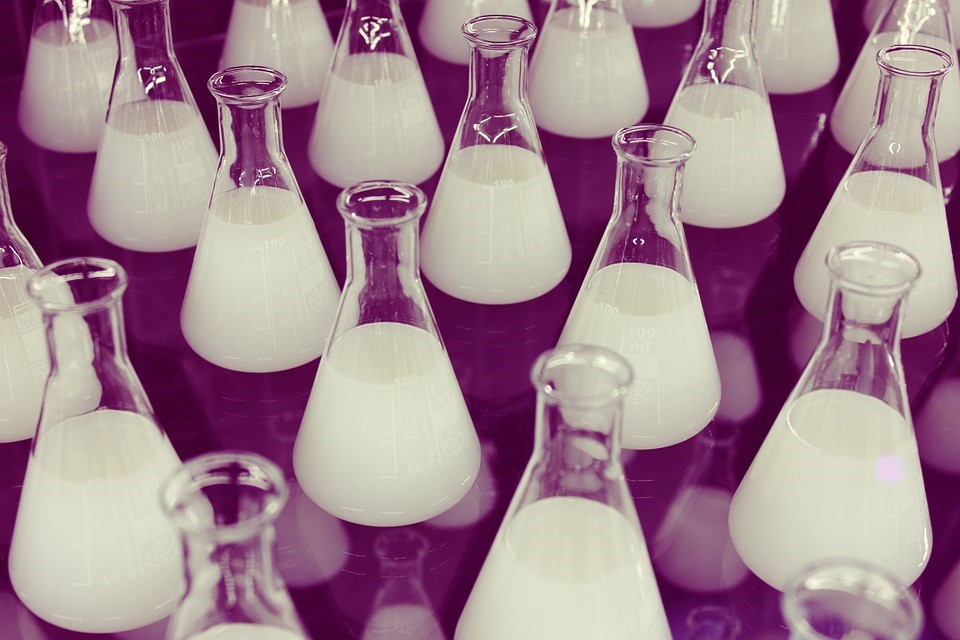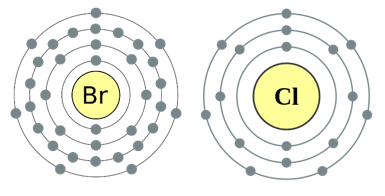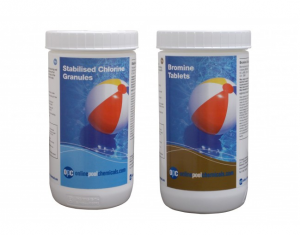Chlorine vs. Bromine: What’s the Difference?

If you’ve found this post, then you probably know that you should be using chemicals to sanitise your hot tub and swimming pool so it is safe to use. But, do you know which chemicals you should be using?
Here we’ll compare the two major ingredients found in most chemical water sanitisers, shock treatments and algaecides. Which will you buy – chlorine or bromine?
Chlorine vs. Bromine – The Cost
In general, bromine will cost more than chlorine, however both will be discounted when bulk order purchased.
Winner: Chlorine
 Lasting Power
Lasting Power
Bromine may be more expensive, but it has the benefit of staying power as it can be reactivated whenever required. Bromine in pool or spa water can be reactivated using a small dose of chlorine shock treatment time-and-time-again and therefore doesn’t need purchasing as often as one-use chlorine.
Winner: Bromine
Strength and Power
Chlorine and bromine have quite similar strengths and powers, however each is better at something different. For example, chlorine is a stronger halogen and therefore oxidises quicker, whereas bromine has a larger atomic size. Bromine is better at killing bacteria and viruses in water, but chlorine is better at quickly clearing algae.
Winner: Joint win
Chemical Stability
Chlorine can be hugely affected by water pH. In fact, with water at a pH of above 7 only about a quarter of the chlorine will be active. It is also influenced by temperature and often gases off in very hot water. Unlike chlorine, bromine is not greatly affected by a change in pH level or temperature.
It is also important to be aware that when chlorine mixes with nitrogen or ammonia it becomes a chloramine and can cause red eyes or itchy skin. This is what’s to blame for that strong pool smell you might have at your local leisure centre or lido. When these combine, chlorine becomes ineffective in sanitising the water.
 When bromine mixes with the same chemicals, it becomes a bromamine, but it does not smell or cause irritation like chlorine. Instead it continues to sanitise your water.
When bromine mixes with the same chemicals, it becomes a bromamine, but it does not smell or cause irritation like chlorine. Instead it continues to sanitise your water.
So, for you scientists out there, why is bromine less reactive than chlorine? Well, chlorine has fewer protons in the nucleus of its atom, as well as one less electron shell, therefore it isn’t shielded as much as bromine. This means, as well as being more affected by elements such as pH or temperature, chlorine will oxidise quicker than bromine when placed in your pool or hot tub water.
Winner: Bromine
Other Things to Consider
• Both have an odour, but they smell different. Some say bromine smells ‘softer’ than chlorine.
• Both can cause skin irritation, though this is less common with bromine. A chlorine allergy is possible.
• Chlorine is more readily available.
• Chlorine is more widely used.
So, Which Should You Choose?
Whether you decide bromine is best for your spa or chlorine is just what you need for your swimming pool, we can help. Shop our vast selection of pool chemicals by clicking here or browse our hot tub treatments here.
(images: Greg Robson under CC BY-SA 2.0 UK)